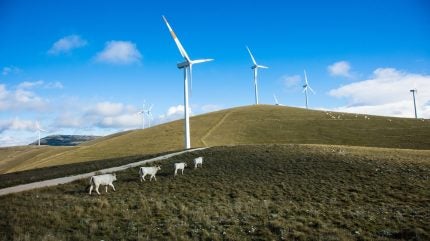
European electricity industry trade group Eurelectric, in collaboration with environmental consultancy WSP, launched a guidebook on Thursday to promote the sustainable, biodiversity-friendly deployment of grid and renewable projects.
The urgency of this initiative was underscored by the alarming decline in global biodiversity, with one million species currently at risk of extinction, Eurelectric reported.
In Europe, 80% of natural habitats are degraded, while climate change is rapidly driving biodiversity loss.
The World Wildlife Fund confirmed the statement, adding that renewable-led decarbonisation can reduce biodiversity risks by 75% and reverse 50% of land loss from climate change.
The guidebook, based on a study conducted on 25 European renewables developers and grid operators, laid out 12 principles that the electricity industry should follow to enhance biodiversity and environmental protection by scaling up nature-inclusive design and optimal operational practices across renewables and grids.
The first group of principles stressed the need to take sequential action following the “mitigation hierarchy protocol”, a step-by-step approach that Eurelectric outlines to limit potential negative effects on biodiversity. Alongside the principle of adhering to the mitigation hierarchy, the group consisted of two more principles: avoiding adverse impacts of irreplaceable biodiversity and making a measurable contribution to biodiversity.
How well do you really know your competitors?
Access the most comprehensive Company Profiles on the market, powered by GlobalData. Save hours of research. Gain competitive edge.

Thank you!
Your download email will arrive shortly
Not ready to buy yet? Download a free sample
We are confident about the unique quality of our Company Profiles. However, we want you to make the most beneficial decision for your business, so we offer a free sample that you can download by submitting the below form
By GlobalDataThe second group focused on identifying the right measures, both on and off-site, outlining five principles: achieve additional conservation outcomes, contribute to conservation priorities, achieve ecological equivalency, address risks and be inclusive and equitable.
The last group aimed to secure long-term benefits and ensure best practices are shared across all relevant actors and the public, highlighting four principles: optimise for multiple benefits, secure long-term outcomes, be transparent and exchange science and knowledge.
The benefits of this approach extend beyond nature conservation, the report added. Developers can improve their reputations and garner social acceptance for their projects, thus avoiding delays resulting from public concerns. Additionally, these projects can bring broader environmental benefits to local communities and bolster climate resilience.
“Adopting ecological measures that can accelerate energy infrastructure deployment to meet our climate targets is a win-win for the planet,” said Kristian Ruby, secretary-general of Eurelectric.
However, significant challenges remain. According to the study, 84% of developers find integrating biodiversity costly, with expenses ranging from €25,000 ($26,771) to €280m per project.
The lack of scientific data and a common metric for measuring nature protection also pose obstacles, discouraging nature-inclusive measures.
Eurelectric called on policymakers to implement the 2030 climate package and adopt the pending Nature Restoration Law. The group also advocated for increased funding for biodiversity-minded projects under the Multiannual Financial Framework, the use of ecological non-price criteria in renewables auctions, as well as fiscal incentives for power purchase agreement buyers with a biodiversity strategy.
“We need all hands on deck, including policymakers, investors and corporate actors, to scale up biodiversity-integrated renewable projects,” said Noor Yafai, the Nature Conservancy’s Europe director of global policy and institutional partnerships.



